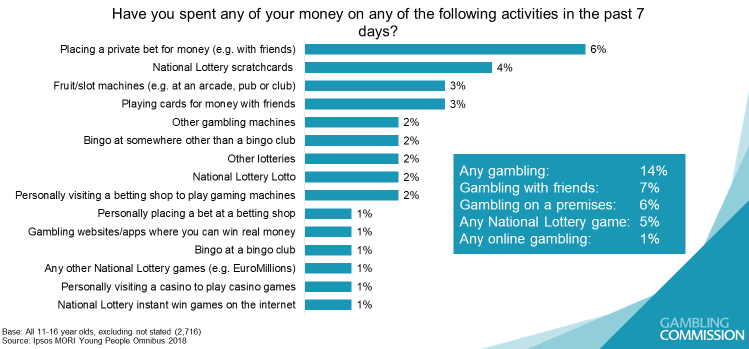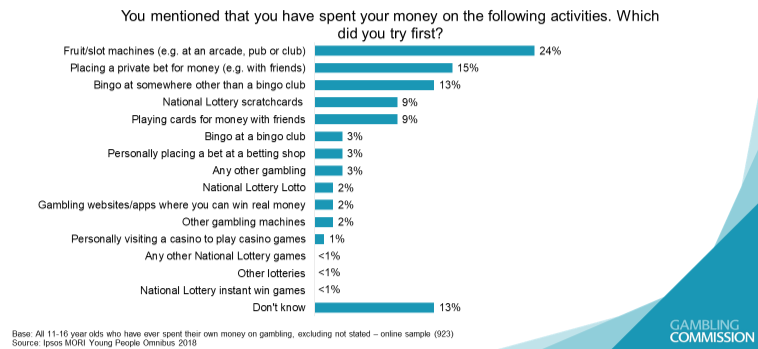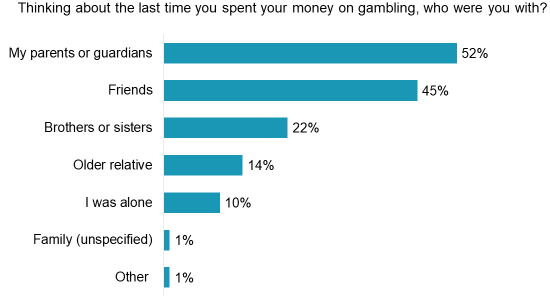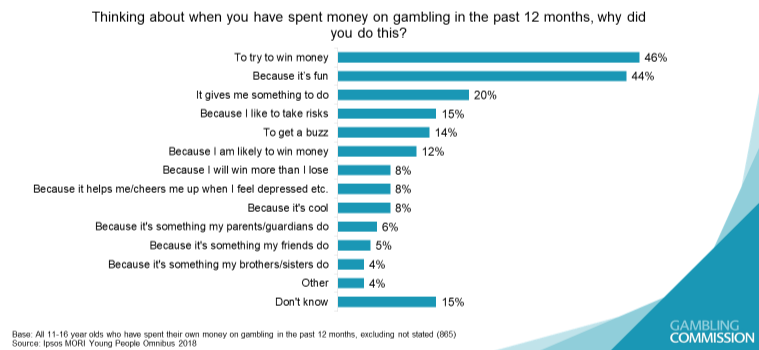Child gamblers: How and why are children gambling?
Gabriella Jozwiak
Wednesday, November 21, 2018
A report has suggested 450,000 children are gambling in the UK - more than those who had drunk alcohol, smoked cigarettes or taken illegal drugs.

The Gambling Commission study found 14 per cent of the more than 2,800 11- to 16-year-olds it studied had gambled within the week before being surveyed - equating to 450,000 of the full 11-16 population in England, Scotland and Wales. The study found that 1.7 per cent are considered to be "problem gamblers".
What are the most common forms of gambling among young people?
The most common form of gambling that young people were found to have spent money on in the past week was betting for money with friends, with six per cent of 11-to 16-year-olds having done so. The next most common forms of gambling are National Lottery scratchcards (four per cent), fruit/slot machines at an arcade, pub or club (three per cent) and playing cards for money with friends (three per cent).

How do young people first begin gambling?
The most common route into gambling was playing on fruit machines (24 per cent). This was followed by placing private bets (15 per cent), bingo at somewhere other than a bingo club (13 per cent), National Lottery scratchcards (nine per cent) and playing cards for money (nine per cent).

Who are they with when they gamble?
The majority (52 per cent) of young people say they are with their parents while they gamble, followed by friends (45 per cent), siblings (22 per cent) or an older relative (14 per cent). Only one in 10 said they gambled alone.

Why do they gamble?
The main reasons why 11- to 16-year olds had chosen to gamble in the past 12 months were to try to win money (46 per cent) and because it is fun (44 per cent). Boys were significantly more likely than girls to have gambled because it gave them something to do (24 per cent of boys compared with 15 per cent of girls) and to get a buzz (17 per cent of boys compared with nine per cent of girls). Older children aged 14- to 16 were more likely to state that they gambled to try to win money, because it is fun, because it gave them something to do and to get a buzz than the younger 11- to 13-year-old age group.

What needs to be done?
Gambling Commission executive director Tim Miller has called for parents, businesses and regulators to work together to protect children.
"Regulation alone cannot address all of the risks that young people may face from gambling," he said.
"Our latest research shows that the most common forms of gambling by children do not happen in gambling premises. Some of these are legal, such as bets between friends; some of these are unlawful, such as gambling on machines in pubs. But all of them present risks to young people as there is no form of gambling that is risk-free."




